IFA president Francie Gorman has stated that the association is prepared to take any actions necessary to secure the margins needed for growers to survive.
Input costs continue to squeeze already-tight margins, an IFA horticulture meeting in Meath heard last week.
The meeting heard senior IFA policy executive Robert Malone claim that the association is “in conflict with Lidl and Aldi nearly all the time” when negotiating on behalf of farmers, particularly on fresh produce.
“Shaming” retailers to sign a voluntary code setting out the terms of their engagement with farmers could help push supermarkets to improve the way they treat growers, Malone said.
The horticulture sector has short supply chains, with only a handful of farmers producing each product line and either negotiating directly with supermarkets or through a facilitator.
Delivery
“If there is an issue to be fought on behalf of growers, as president of the organisation, we will front for you and whatever has to be done to try and get a deal or get delivery for you, we will do,” the IFA president said.
“In general, I would say that instead of blocking up or closing down retailers, we need to sit down with them and let them know what is going to happen if they are not going to deliver for growers.
“For me it is a step-by-step process. If it has to be done upside down, we will do it upside down as well.”
Long-standing field vegetable and potato grower Eddie Doyle from Co Kilkenny was one of the many present who warned that retailer antics are pushing growers out of the sector.
“I have never seen as many growers, this year in particular, so disillusioned and so unhappy with their lot, so unhappy in reality, that they are willing to throw in the towel and that is not something I am making up,” Doyle commented.
“We have been blaggarded and bullied around by supermarkets who blame facilitators and facilitators who blame supermarkets.”
IFA fruit and vegetable committee chair Niall McCormack stated that the newly established Agri-Food Regulator will “hopefully” strengthen growers’ position within the supply chain.
“There have been growers exit the industry and the dairy, beef and other sectors had their days in the sun, but unfortunately, Irish horticulture remains the poor relation of Irish agriculture,” according to McCormack.
Cost pressures
The meeting heard that the proposed pay scale hike for general employment permit workers came as an unexpected cost blow for growers.
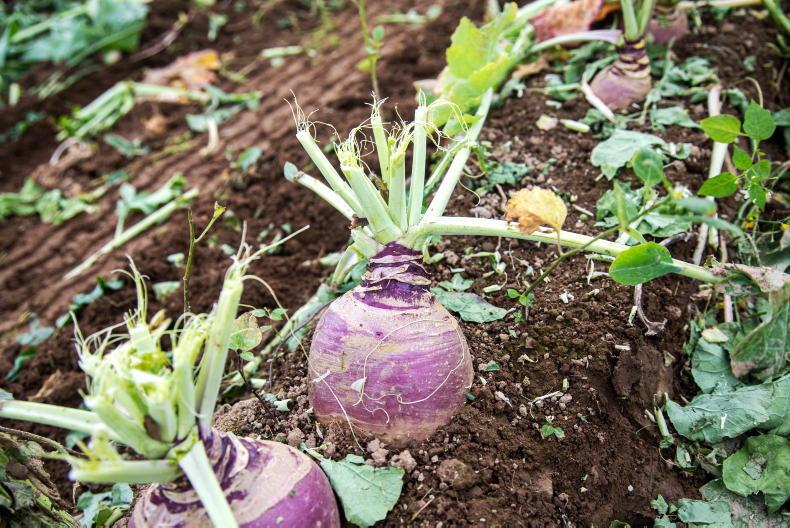
Negotiating contracts and prices is proving difficult for farmers as retailers look to reduce consumer costs. \ Claire Nash
Under Government plans, horticulture workers with this permit will see their salary rise to €39,000 by January 2026, from €22,900 in 2023.
“Of course, the industry wants to pay workers the top amount they can, but it’s just the margins and the timeframe that is there to return that from the marketplace is the big issue,” IFA policy executive Niamh Brennan explained.
More generally, the meeting heard that cost pressures on growers over the past three years have been huge, with inputs skyrocketing by an average of 54% for high-wire growers, 47% for mushroom growers and 43% for vegetables over this timeframe.
Teagasc has only been collecting these industry cost figures since 2021, which growers have cited as being useful for seeking price rises from retailers.
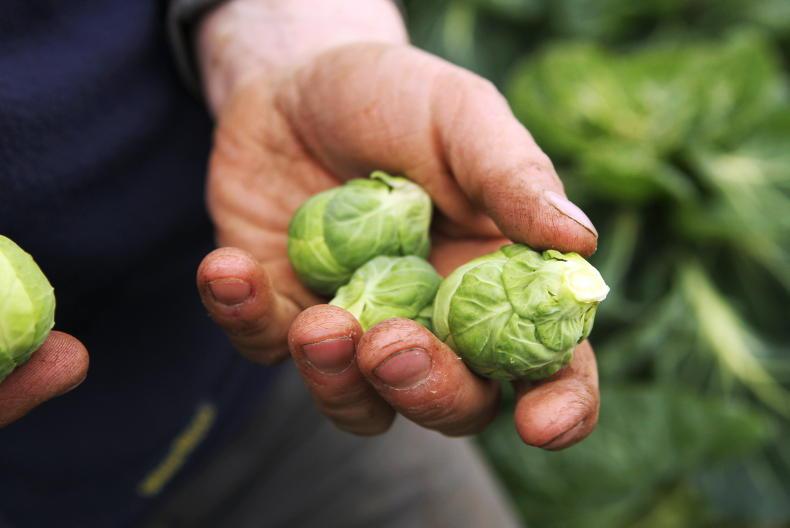
The IFA president insists the association will represent farmers who feel bullied by supermarkets.
In response to a query from the Irish Farmers Journal, Aldi said that its commercial negotiations with growers are “always constructive and largely positive”.
“These long terms supplier relationships are strategic to our continued success,” the supermarket said.
IFA president Francie Gorman has stated that the association is prepared to take any actions necessary to secure the margins needed for growers to survive.
Input costs continue to squeeze already-tight margins, an IFA horticulture meeting in Meath heard last week.
The meeting heard senior IFA policy executive Robert Malone claim that the association is “in conflict with Lidl and Aldi nearly all the time” when negotiating on behalf of farmers, particularly on fresh produce.
“Shaming” retailers to sign a voluntary code setting out the terms of their engagement with farmers could help push supermarkets to improve the way they treat growers, Malone said.
The horticulture sector has short supply chains, with only a handful of farmers producing each product line and either negotiating directly with supermarkets or through a facilitator.
Delivery
“If there is an issue to be fought on behalf of growers, as president of the organisation, we will front for you and whatever has to be done to try and get a deal or get delivery for you, we will do,” the IFA president said.
“In general, I would say that instead of blocking up or closing down retailers, we need to sit down with them and let them know what is going to happen if they are not going to deliver for growers.
“For me it is a step-by-step process. If it has to be done upside down, we will do it upside down as well.”
Long-standing field vegetable and potato grower Eddie Doyle from Co Kilkenny was one of the many present who warned that retailer antics are pushing growers out of the sector.
“I have never seen as many growers, this year in particular, so disillusioned and so unhappy with their lot, so unhappy in reality, that they are willing to throw in the towel and that is not something I am making up,” Doyle commented.
“We have been blaggarded and bullied around by supermarkets who blame facilitators and facilitators who blame supermarkets.”
IFA fruit and vegetable committee chair Niall McCormack stated that the newly established Agri-Food Regulator will “hopefully” strengthen growers’ position within the supply chain.
“There have been growers exit the industry and the dairy, beef and other sectors had their days in the sun, but unfortunately, Irish horticulture remains the poor relation of Irish agriculture,” according to McCormack.
Cost pressures
The meeting heard that the proposed pay scale hike for general employment permit workers came as an unexpected cost blow for growers.

Negotiating contracts and prices is proving difficult for farmers as retailers look to reduce consumer costs. \ Claire Nash
Under Government plans, horticulture workers with this permit will see their salary rise to €39,000 by January 2026, from €22,900 in 2023.
“Of course, the industry wants to pay workers the top amount they can, but it’s just the margins and the timeframe that is there to return that from the marketplace is the big issue,” IFA policy executive Niamh Brennan explained.
More generally, the meeting heard that cost pressures on growers over the past three years have been huge, with inputs skyrocketing by an average of 54% for high-wire growers, 47% for mushroom growers and 43% for vegetables over this timeframe.
Teagasc has only been collecting these industry cost figures since 2021, which growers have cited as being useful for seeking price rises from retailers.

The IFA president insists the association will represent farmers who feel bullied by supermarkets.
In response to a query from the Irish Farmers Journal, Aldi said that its commercial negotiations with growers are “always constructive and largely positive”.
“These long terms supplier relationships are strategic to our continued success,” the supermarket said.







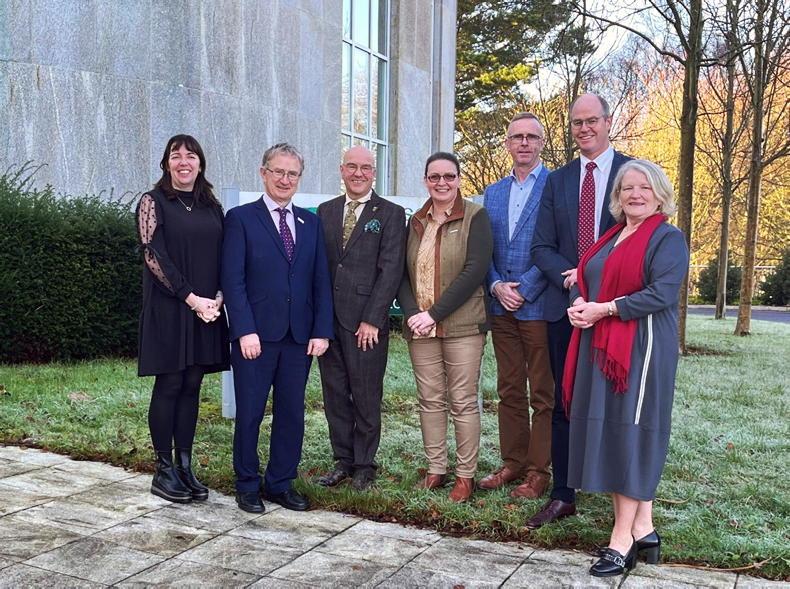
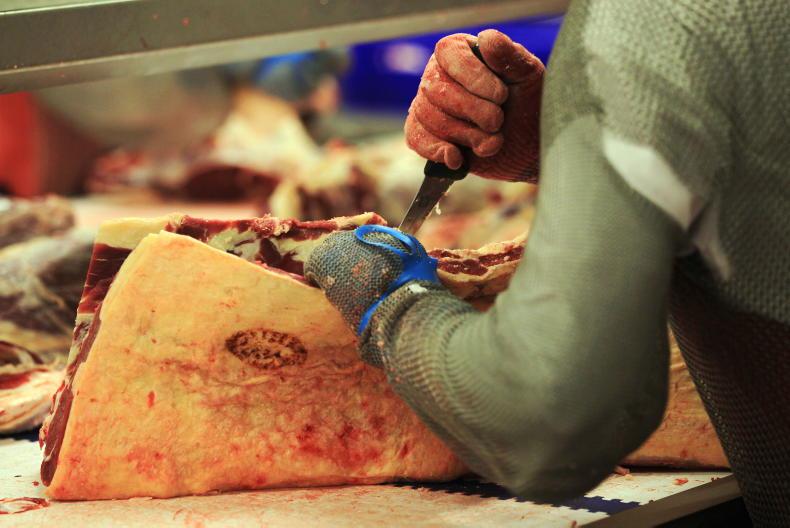

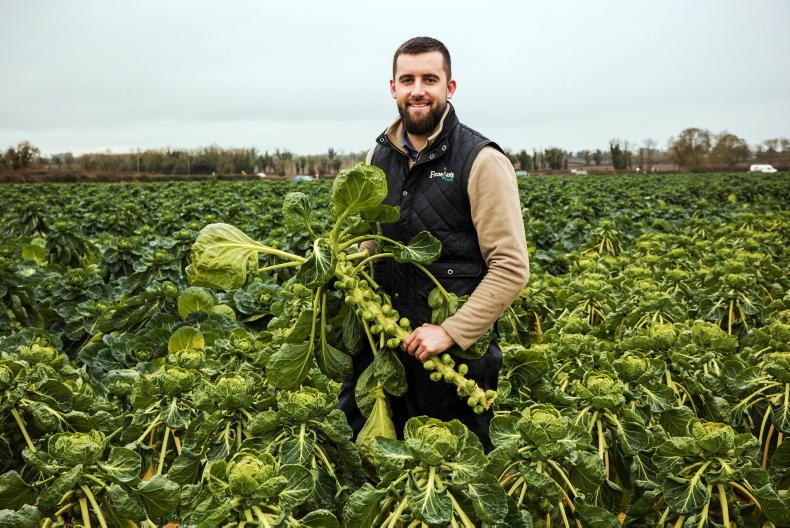
SHARING OPTIONS